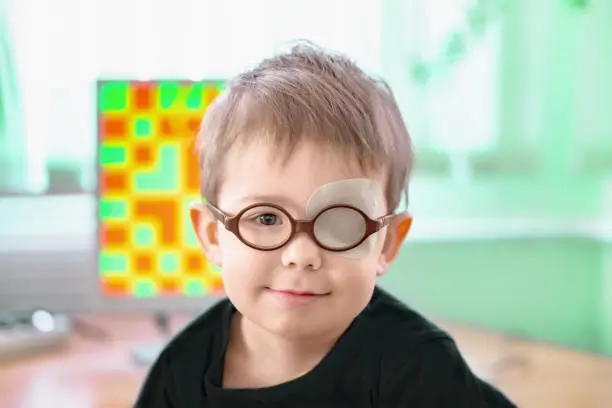Language Affects How Quickly We Perceive Shades of Color
Researchers have found that taking a daily supplement containing antioxidant vitamins and minerals slows progression of late-stage dry age-related macular degeneration (AMD).
Researchers have found that taking a daily supplement containing antioxidant vitamins and minerals slows progression of late-stage dry age-related macular degeneration (AMD).
Here are some common questions and answers about UV light and how to protect your eyes from the sun.

Adults who had amblyopia ('lazy eye') in childhood are more likely to experience hypertension, obesity, and metabolic syndrome in adulthood, as well as an increased risk of heart attack, finds…
By Sarah McGoldrickMyopia has reached epidemic proportions. Once seen as an eye condition mainly experienced by children, it now affects approximately 25 percent of a quarter of young adults. A…
GENEVA (ILO News) – More needs to be done to protect workers’ eye health, says a new report by the International Labour Organization (ILO) and the International Agency for the Prevention…
Uncorrected refractive error is often ignored in the realm of global health priorities, yet its substantial impact on the economic and personal wellbeing of individuals and societies worldwide is undeniable. Myopia (shortsightedness), hyperopia (farsightedness), and astigmatism, grouped together under the term ‘refractive error’, cause blurred distance and/or near vision, and presbyopia (age-related loss of accommodation) causes blurred near vision.
By Michael Irving Scientists have developed a new type of lens that creates multiple focal points, which could make for glasses or contacts that provide a clearer view over a range of…
In a study recently published in JAMA Ophthalmology, researchers from the Tokyo Medical and Dental University (TMDU) developed a machine-learning model that works well for predicting -- and visualizing -- the…
Pursuing fair artificial intelligence (AI) for healthcare requires collaboration between experts across disciplines, says a global team of scientists led by Duke-NUS Medical School in a new perspective published in npj…
In the ever-evolving landscape of health and medicine, the University of KwaZulu-Natal's (UKZN) Department of Optometry emerges as a luminary, illuminating the path for many others to follow. Its unwavering…